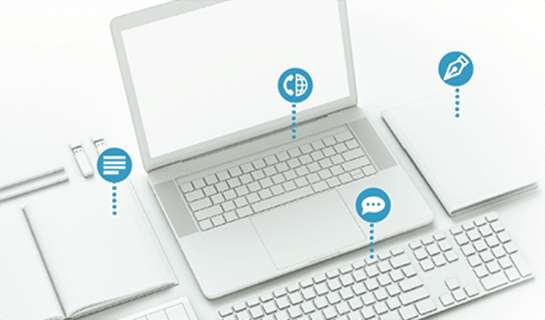Why Your CRM is Essential to Data Collection
Phone calls, online chat, incoming and outgoing emails, face-to-face conversations, and other interactions—they contain vital information to building stronger customer relationships, and ultimately, thriving businesses.
But while your business’ people-centric aspects (sales, marketing, support) are key to improving your revenue, their data is difficult to capture and is often ignored.
What if you had a central hub for collecting customer interaction data? Maybe you already do—your CRM! Here are our top 4 reasons why your CRM should be your communications data collection core.
1. Accessibility
Today, CRMs are common, popular, and widely accessible. If your organization has been using CRM for some time, then your sales, marketing, and support professionals are already familiar with the platform and need little to no training for extra software in order to start collecting communications data. Additionally, modern CRMs offer mobile device support, letting your teams get valuable insights into CRM data even outside the office.
2. Customization
With the right customizations, your CRM can be the ideal pillar for your foray into data collection. Customizations might include interface, reports, dashlets, alerts and notifications, and one-click shortcuts. As long as the platform has been customized for your teams and your business, your CRM will become your go-to software for data collection in no time.
Apart from offering easy customization options to your teams, a CRM can help you facilitate prospect interactions, increasing your organization’s revenue-generating potential.
3. Integration
Today’s flexible CRMs can be connected to other platforms that hold customer data, including email, phone systems, marketing automation, support portals, and more. Aggregating collected data from these platforms in one place is vital for quick information access and reporting on interaction data.
4. Automation
Customer-facing employees rarely have the time to manually gather critical customer data that may be logged in a handful of different applications and databases. As you start integrating your CRM with other platforms, make sure your teams are always notified as new interactions come in with emails and notifications. You’ll never have to guess if they received new customer data again!
5. Predictability
Leveraging AI, CRMs can now enhance predictability along the sales pipeline in your organization. Your CRM is no longer just collecting data; it compiles and interprets it, giving you a glimpse into the future. Your CRM will tell you which leads are more likely to convert, which accounts are more likely to renew contracts, and more by taking into consideration historical data stored by your CRM and sometimes, even public databases. This will enable your sales team to close more deals faster, with a fraction of the resources down the road.
In Conclusion
Successful relationship management depends on superior data management: capturing and accessing a complete data picture informed by all your customer interactions. Today, you have the power to remove the last obstacles to capturing that data. New technologies can turn your CRM into the core that helps you collect, analyze, and apply the data insights you need to realize the full value of every customer. And, if this process is properly automated, your customer facing-teams will be eager to adopt.



